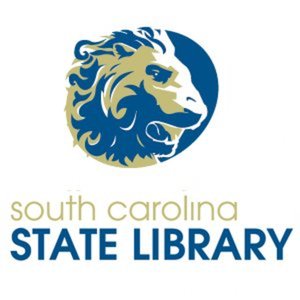South Carolina State Library Launches Social Media Library and Archive
 The South Carolina State Library (SCSL) has launched the South Carolina State Agency Social Media Library, a new project that will archive all tweets, Facebook posts, and YouTube content generated by the official accounts of South Carolina’s state agencies while simplifying public access to this social media activity via a single online portal at scsocialmedialibrary.org. The portal and the archive were developed in collaboration with ArchiveSocial, a for-profit social media archiving company based in Durham, NC. It follows a similar effort launched by the State Archives of North Carolina less than a year ago.
The South Carolina State Library (SCSL) has launched the South Carolina State Agency Social Media Library, a new project that will archive all tweets, Facebook posts, and YouTube content generated by the official accounts of South Carolina’s state agencies while simplifying public access to this social media activity via a single online portal at scsocialmedialibrary.org. The portal and the archive were developed in collaboration with ArchiveSocial, a for-profit social media archiving company based in Durham, NC. It follows a similar effort launched by the State Archives of North Carolina less than a year ago.
Currently in beta test with SCSL and six other state agencies, the project will serve several purposes, explained SCSL Innovation and Digital Librarian Amanda Stone. Making it easier to search the aggregated content generated by multiple agencies offers South Carolina’s citizens a new level of transparency with social media communication from official government channels, Stone said. SCSL also anticipates that the Social Media Library will make it easier for these agencies to fulfill some types of Freedom of Information Act (FOIA) requests. And, as more South Carolina citizens use social media to interact with their state government, the archive will ensure that these two-way communications are preserved and made accessible.
“Increasingly these social media streams aren’t just being used to push out press releases,” Stone said. “They’re being used as two-way communication. Citizens ask [state agencies] questions on Facebook, or they’ll reference events they went to on their Twitter accounts back to the agency. And that’s something that was being lost.”
Without a preservation effort like the Social Media Library, posts, tweets, and other content can disappear if social media accounts are closed when agencies are defunded or merged, for example. And while these state agency posts are already public, Stone emphasized that Facebook, Twitter, and YouTube don’t make any guarantees regarding long-term preservation of any content on their sites.
“Most people don’t realize that Twitter doesn’t keep all tweets forever. There are some limits,” Stone said. “And Facebook could close tomorrow. I doubt it’s going to, but saying [posts are] available now doesn’t mean they are going to be in the future. This is a way we can ensure continued access.”

The project was developed in collaboration with Durham, NC-based ArchiveSocial
The system also offers a convenient way to monitor how various state agencies are responding to significant events in real time, noted SCSL Communications Director Curtis Rogers. When searching the term “shutdown” on October 3, for example, results include a tweet from SCSL linking to coverage on how the federal government shutdown that began on Oct. 1 would impact libraries. Separately, on the same results page, there is a Facebook post from the South Carolina Department of Parks, Recreation, and Tourism informing citizens that state parks, unlike federal parks, would be unaffected by the shutdown. Below that post, several Facebook users wrote personal recommendations for parks to visit.
“It’s interesting to be able to see these transactions, this conversation, going on with people who really love our state parks,” Rogers said.
This functionality makes South Carolina’s Social Media Library distinct from social media projects such as the Library of Congress (LC) Twitter Archive, which was developed, in part, to help LC study organization, management, and discovery issues that arise when working with massive data sets.
“This is a much smaller batch of information,” Stone said. “It’s almost trivial to be able to keep it and organize it.”
Stone estimates that the Social Media Library project will cost $7,000 during its initial year, which will be drawn from a pool of grant funding provided by the Institute of Museum and Library Services (IMLS). Currently, in addition to SCSL and the state parks department, five other state agencies are involved: the South Carolina Arts Commission, the Education Oversight Committee, the Department of Consumer Affairs, the School Improvement Council, the Emergency Management Division, and the Department of Commerce. SCSL and ArchiveSocial are currently working with the state’s Election Commission to include its social media feeds as well, and Stone expects several more agencies to join the program when it moves out of beta stage within the next few months. Costs will likely rise as other agencies are added, but, as Rogers notes, “when you look at the project and what it’s doing, for that amount, it’s really pretty good.”
SCSL Director Hulen Bivins added that IMLS grants had given the state library the opportunity to try this new program and study its usefulness both to state agencies and to residents. Decisions regarding ongoing funding will be made after assessing that usefulness.
“The whole concept of how IMLS funding was designed to help states experiment, learn, and try new things is seeing fruition here….” Bivins said. “Obviously, we’re very proud to be on the cutting edge, and obviously, we’re very proud to have the opportunity to test this. How it goes down the road will be information we can share with other states.”
RELATED
ALREADY A SUBSCRIBER? LOG IN
We are currently offering this content for free. Sign up now to activate your personal profile, where you can save articles for future viewing









Add Comment :-
Comment Policy:
Comment should not be empty !!!